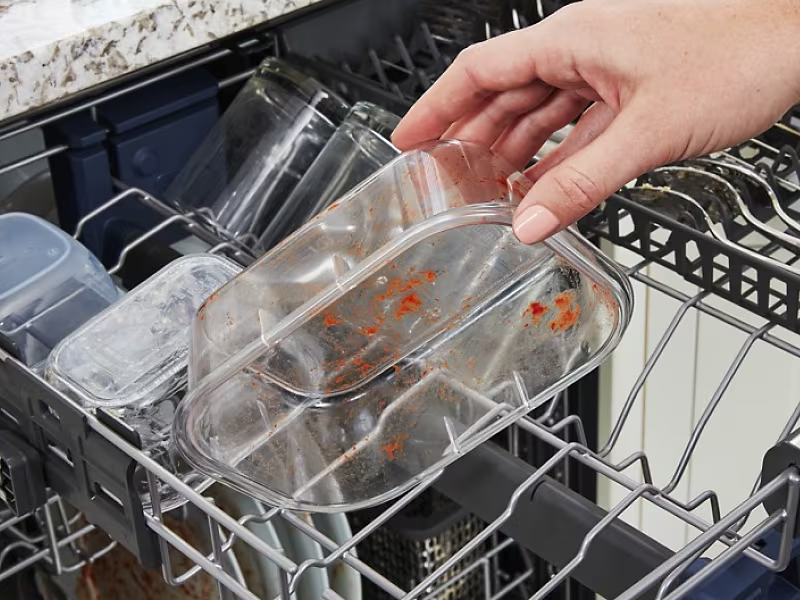There’s little more frustrating than opening your dishwasher, expecting sparkling clean dishes, only to find glasses with streaks, plates still grimy, or bits of last night’s dinner clinging stubbornly to utensils. If you’re noticing your dishwasher isn’t cleaning as it should, you’re definitely not alone—this is one of the most common kitchen appliance complaints. But why does it happen, and what can you do about it?
Below, we’ll walk through the typical reasons your dishwasher may be underperforming and provide practical solutions you can try before calling in the pros.
1. Overloading or Improper Loading
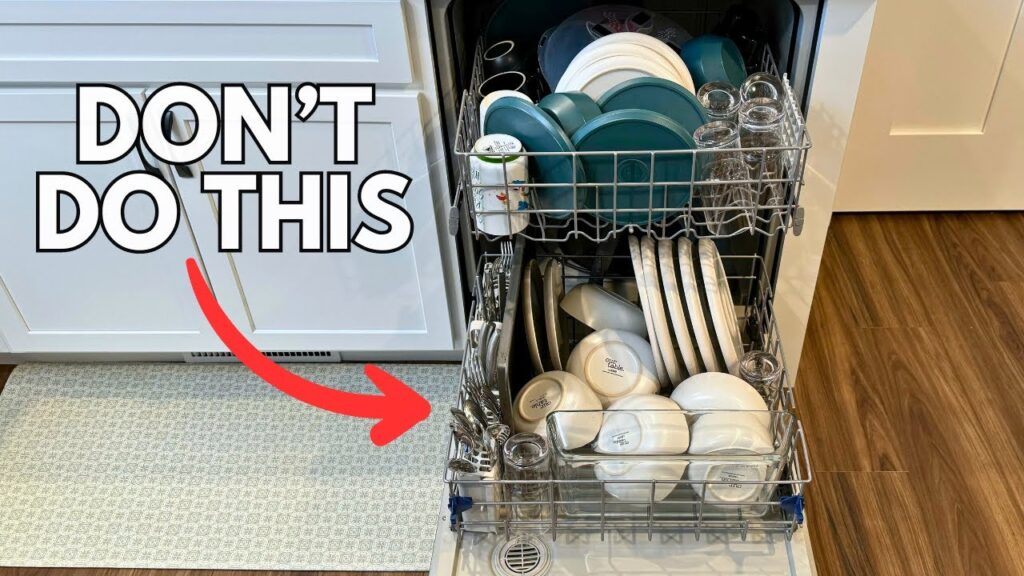
Let’s be honest—most of us have, at some point, crammed as many dishes as possible into the dishwasher in an effort to save time or energy. But overloading (or even just loading dishes the wrong way) can block the spray arms and prevent water and detergent from reaching every surface.
Solution:
Take a moment to consult your dishwasher’s manual for recommended loading patterns. Avoid stacking bowls, cups, or plates in a way that nests them together. Leave enough space between items so that water can circulate freely. Yes, it might mean running an extra cycle, but your dishes will thank you.
2. Dirty or Clogged Spray Arms
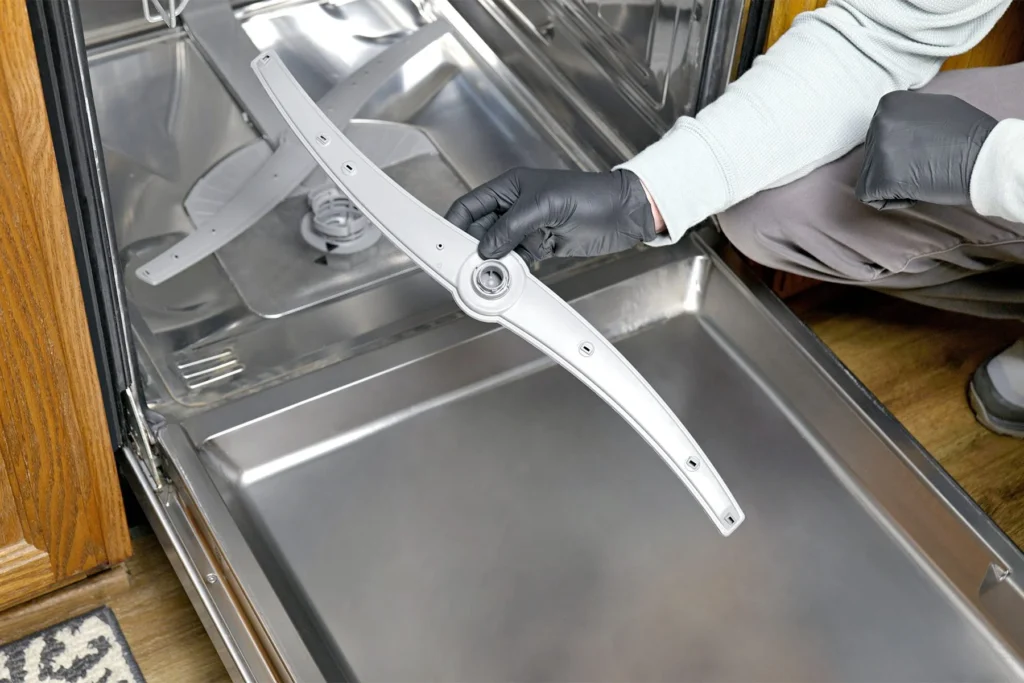
Spray arms are the workhorses of your dishwasher. Over time, food particles, mineral deposits, and grease can clog the tiny holes, weakening the water pressure and coverage.
Solution:
Remove the spray arms (usually a straightforward process, but check your manual), rinse them under warm water, and use a toothpick or soft brush to clear any blockages. This quick fix can dramatically improve cleaning performance.
3. Filter or Drain Blockages
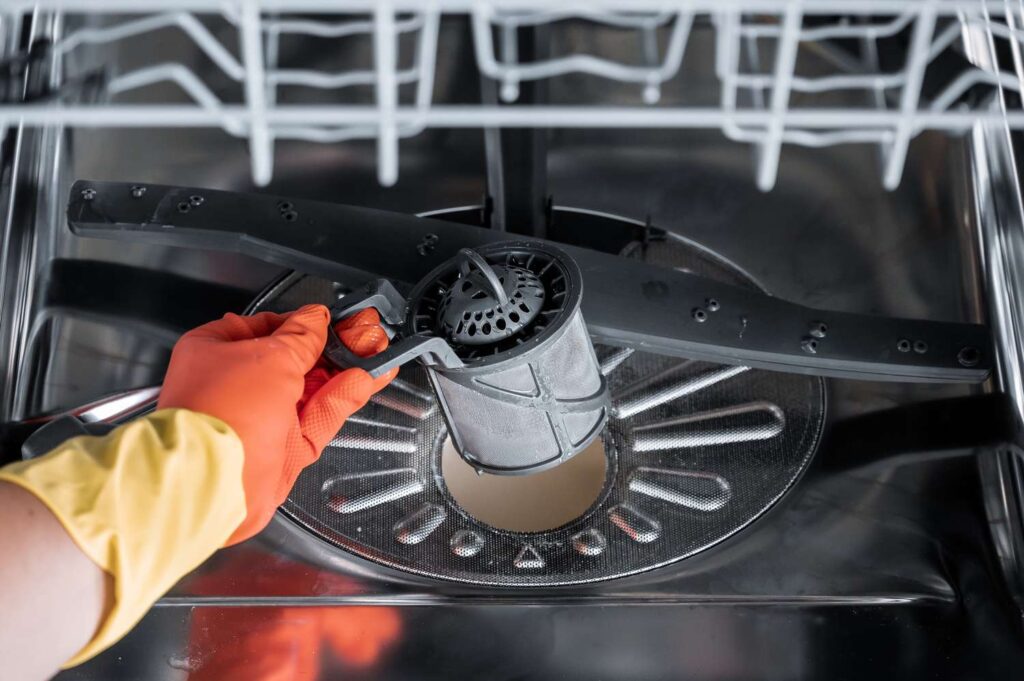
Many modern dishwashers have filters to trap food debris. If you’re not cleaning the filter regularly, it can become clogged, reducing water flow and causing foul odors—or even leaving residue on your dishes.
Solution:
Locate your dishwasher’s filter (typically at the bottom), remove it, and wash it under running water. Make this part of your monthly cleaning routine. Also, check the drain area for any bits of food or debris that might have built up over time.
4. Low Water Temperature
Dishwashers rely on hot water—ideally between 120°F and 150°F—to dissolve detergent and break down grease. If your water isn’t hot enough, the dishwasher’s cleaning power drops significantly.
Solution:
Run the kitchen faucet until hot water comes out before starting the dishwasher. You might also want to check your water heater’s temperature setting to ensure it’s high enough (but not scalding). Some older dishwashers may also have a heating element that can fail, requiring repair.
5. Detergent Problems
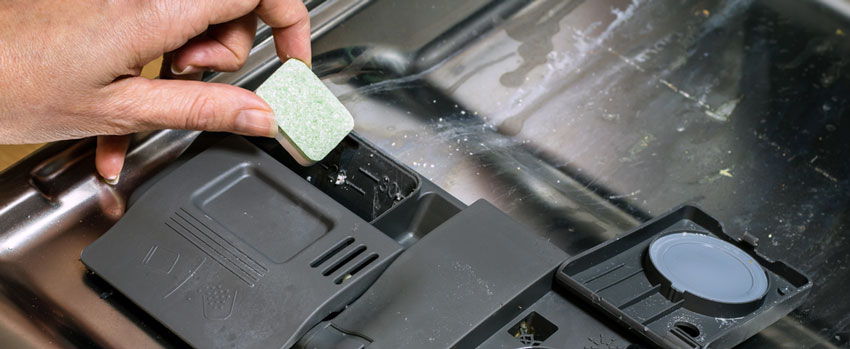
Not all dishwasher detergents are created equal. Using too little, too much, or the wrong type for your water hardness can leave behind residue or spots. Similarly, old or improperly stored detergent can clump and lose effectiveness.
Solution:
Use high-quality detergent recommended by your dishwasher’s manufacturer, and measure carefully according to the packaging and your local water hardness. If you have hard water, consider adding a rinse aid or water softener. Store detergent in a cool, dry place and avoid buying in bulk unless you use it frequently.
6. Hard Water Buildup
Mineral deposits from hard water can build up on internal components and dishes, leaving cloudy films or spots behind. This is especially common in areas with untreated or very hard water.
Solution:
Run a monthly dishwasher cleaning cycle with a dishwasher cleaner or a cup of white vinegar placed on the top rack. If hard water is a recurring issue, a water softener system or regular use of rinse aid can help keep things sparkling.
7. Faulty Parts or Worn Components
If you’ve tried all of the above and your dishwasher still isn’t cleaning well, it could be a sign of worn-out parts—like a broken pump, faulty spray arm, malfunctioning heating element, or issues with the door seal.
Solution:
At this point, it’s often best to consult a professional. Modern dishwashers are complex machines, and DIY repairs on electrical or mechanical components can sometimes do more harm than good.
When to Call the Experts
Despite your best efforts, sometimes a stubborn dishwasher just won’t cooperate. If you’ve run through all the troubleshooting steps and your dishes are still coming out dirty, don’t give up hope. Professional appliance repair technicians have the training and tools to diagnose and fix even the trickiest problems.
Need reliable help in Manhattan? Contact our expert team at Manhattan Appliance Repairs—we’ll get your dishwasher back to peak performance in no time, so you can get back to enjoying spotlessly clean dishes without the headache.

